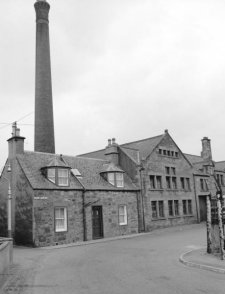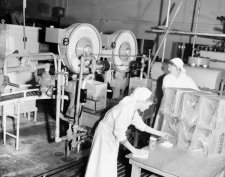| Whale Oil Uses |
|
Home |
Margarine The French chemist H. Mège-Mouriès invented margarine in the late 1860s. A melted fat blend was churned with milk and salt, chilled to solidify the mixture and kneaded to a plastic consistency. The edible fats used in the manufacture of margarine have varied widely; animal fats were predominant in earlier times but vegetable fats, principally cottonseed, soybean, coconut, peanut, corn oil and palm oil have gradually replaced them. Most of the whale oil used in margarine production came from the Antarctic rather than from the Greenland industry and peaked in importance in the 20th century. In order to make whale oil into an edible fat for human consumption it had first to be made solid This was achieved by hydrogenation of the double bonds between carbon atoms in unsaturated fatty acids. This rendered the liquid oil solid and removed the dark colour and fishy taste and odour. The process consisted of blowing hydrogen through the oil in the presence of nickel as a catalyst. Hydrogenation produced an edible fat with a melting point of ca 45 degrees C. By 1930 it was possible to produce a margarine that melted at 30 degrees and which would therefore melt in the mouth. This greatly increased the demand for whale oil and by 1960 it was making up 17% of the total fats used in margarine production. Today, whale oil is no longer used in the manufacture of margarine, having been replaced by vegetable oils. The Creamine Factory was a margarine and artificial cream factory, dating from the pioneering days of margarine manufacture in Scotland. Small margarine and bakers' cream factories were not unusual in Scotland before improved distribution systems allowed the large English companies to dominate this market. |

